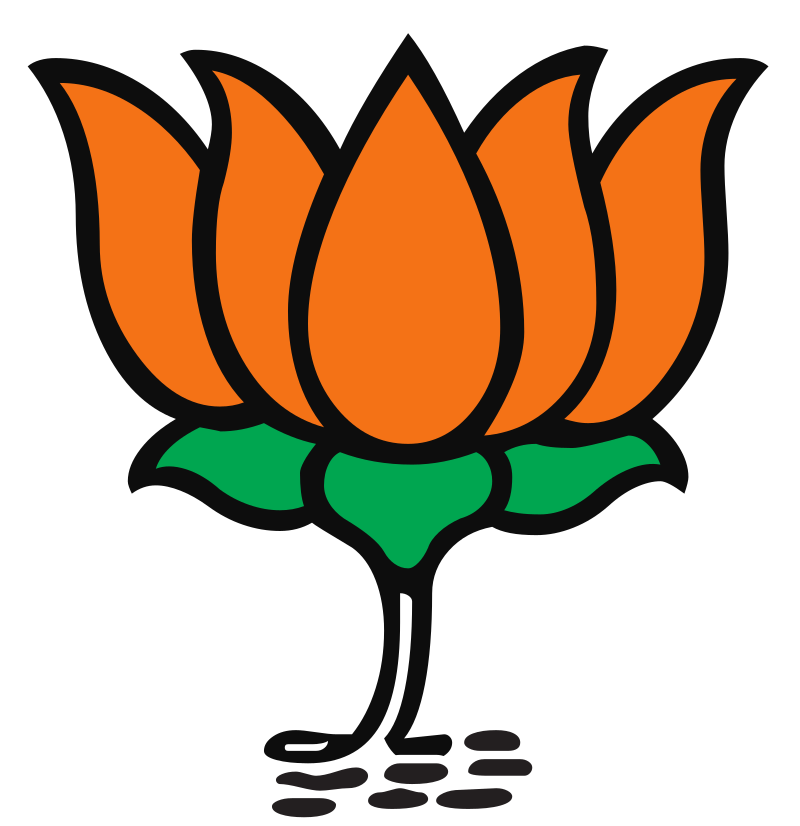The Bharatiya Janata Party (BJP), one of India’s major political forces, is deeply rooted in the nationalist and cultural philosophies propounded by several eminent figures in India’s history. The ideological foundation of the BJP can be traced back to the works and thoughts of Bankim Chandra Chattopadhyay, Swami Dayananda Saraswati, Bal Gangadhar Tilak, Lala Lajpat Rai, Bipin Chandra Pal, Swami Vivekananda, and Sri Aurobindo. These leaders shaped the contours of Indian nationalism and cultural resurgence, which in turn influenced K.B. Hedgewar to establish the Rashtriya Swayamsevak Sangh (RSS), a precursor to the BJP.
Bankim Chandra Chattopadhyay
Bankim Chandra Chattopadhyay, a 19th-century Bengali writer and philosopher, played a pivotal role in instilling a sense of nationalism among Indians through his literary works. His novel “Anandamath” and the hymn “Vande Mataram” became symbols of the Indian independence movement. The idea of cultural nationalism, which emphasizes the revival and preservation of India’s cultural heritage, deeply influenced the BJP’s ideological framework. The BJP’s emphasis on cultural nationalism and its efforts to promote and preserve India’s cultural and spiritual heritage are rooted in Bankim’s vision.
Swami Dayananda Saraswati
Swami Dayananda Saraswati, the founder of the Arya Samaj, was a prominent social reformer who advocated for the return to the Vedas. His philosophy emphasized the importance of Vedic values and principles, social reform, and the rejection of Western cultural dominance. Dayananda’s call for “India for Indians” resonates in the BJP’s emphasis on Hindutva, which seeks to uphold and propagate the cultural and spiritual ethos of India. The Arya Samaj’s influence is evident in the BJP’s focus on education, social reform, and the promotion of indigenous cultural values.
Bal Gangadhar Tilak
Bal Gangadhar Tilak, known as the “Father of Indian Unrest,” was a nationalist leader who believed in the concept of Swaraj (self-rule) as a birthright. Tilak’s emphasis on militant nationalism and his use of Hindu religious symbolism to mobilize masses are key aspects that influenced the BJP’s political philosophy. The celebration of Ganesh Chaturthi and Shivaji festivals, initiated by Tilak, aimed to instill a sense of unity and national pride, reflecting the BJP’s use of cultural symbols to foster national integration.
Lala Lajpat Rai
Lala Lajpat Rai, part of the Lal-Bal-Pal trio, was a fervent nationalist and a proponent of Hindu unity. His writings and speeches emphasized the need for political and social reforms and the upliftment of the masses. Rai’s vision of a strong, united India based on its ancient cultural values is mirrored in the BJP’s agenda, which seeks to strengthen national unity and integrity through cultural and social cohesion.
Bipin Chandra Pal
Bipin Chandra Pal, another member of the Lal-Bal-Pal trio, advocated for radical approaches to achieving independence. He was a strong proponent of the Swadeshi movement, which promoted the use of indigenous goods and self-reliance. Pal’s ideas of economic nationalism and his vision of an independent India, self-reliant and free from foreign dominance, align with the BJP’s economic policies, which emphasize self-reliance and the promotion of indigenous industries.
Swami Vivekananda
Swami Vivekananda’s teachings on Vedanta and his vision of a strong, spiritually enlightened India have significantly influenced the BJP’s ideological stance. Vivekananda’s call for the rejuvenation of Indian society through spiritual awakening and his emphasis on the unity of all religions have inspired the BJP’s vision of an inclusive nationalism that respects and incorporates diverse cultural and religious identities within the framework of a unified nation.
Sri Aurobindo
Sri Aurobindo’s philosophy of Integral Yoga and his vision of India as a spiritual leader of the world have deeply impacted the BJP’s ideological outlook. Aurobindo’s writings emphasized the importance of spiritual nationalism and the role of India in the spiritual regeneration of the world. The BJP’s emphasis on India’s spiritual heritage and its role in the global community echoes Aurobindo’s vision.
K.B. Hedgewar and the Formation of the RSS
Keshav Baliram Hedgewar, inspired by the philosophies of these nationalists and reformers, founded the Rashtriya Swayamsevak Sangh (RSS) in 1925. Hedgewar aimed to create a disciplined, united, and self-reliant Hindu society that could withstand foreign domination and internal disunity. The RSS sought to instill a sense of pride in India’s cultural heritage and to promote the idea of Hindutva, a concept that underscores the cultural and spiritual unity of India.
Hedgewar was particularly influenced by the militant nationalism of Tilak and the cultural nationalism of Bankim Chandra and Dayananda Saraswati. He believed in the need for a strong, organized Hindu society as the foundation for a strong nation. The RSS’s emphasis on discipline, self-reliance, and social service reflects the ideals of these leaders. The organization’s daily activities, including physical training, intellectual discussions, and community service, aim to create a cadre of dedicated individuals committed to the nation’s service.
The BJP: A Continuation of a Legacy
The BJP, as the political wing of the RSS, carries forward this legacy of cultural nationalism and social reform. The party’s policies and programs are deeply influenced by the philosophies of these great leaders. The BJP’s emphasis on cultural revival, social unity, economic self-reliance, and spiritual awakening reflects the integrated approach of these nationalists and reformers.
The BJP’s vision of India as a strong, self-reliant nation, proud of its cultural heritage and committed to the welfare of all its citizens, is a direct continuation of the ideological foundation laid by Bankim Chandra Chattopadhyay, Swami Dayananda Saraswati, Bal Gangadhar Tilak, Lala Lajpat Rai, Bipin Chandra Pal, Swami Vivekananda, and Sri Aurobindo. The party’s efforts to promote Hindutva, foster social unity, and build a self-reliant economy are deeply rooted in the teachings and philosophies of these visionary leaders.
In conclusion, the BJP’s political philosophy is a rich tapestry woven from the thoughts and ideals of some of India’s greatest nationalists and reformers. The influences of Bankim, Dayananda, Tilak, Lajpat Rai, Bipin Chandra Pal, Vivekananda, and Aurobindo are evident in the party’s ideology and actions, making the BJP a modern political embodiment of their vision for India.

Kalyan Chandra
Kalyan chandra is a political strategist, media and communication consultant with the expertise in public relations, marketing, political research, election campaign management, psephology and digital analytics. He focuses on strategic political consulting, offering services that include competitive research, public opinion collection, and digital media management. Kalyan has significantly contributed to successful campaigns across India with his meticulous approach and deep understanding of the political landscape.
Related posts:
- Hindu Nationalism in India – Key Proponents
- Congress Party Manifesto – Telangana 2018 Assembly Elections (Text)
- Bodhan municipal election results 2020 – complete wards list
- BJP’s Matua Outreach Strategy in West Bengal
- Ramagundam municipal election results 2020 – complete wards list
- Subaltern Hindutva and Sanskritization: The BJP’s Strategic Alignment

